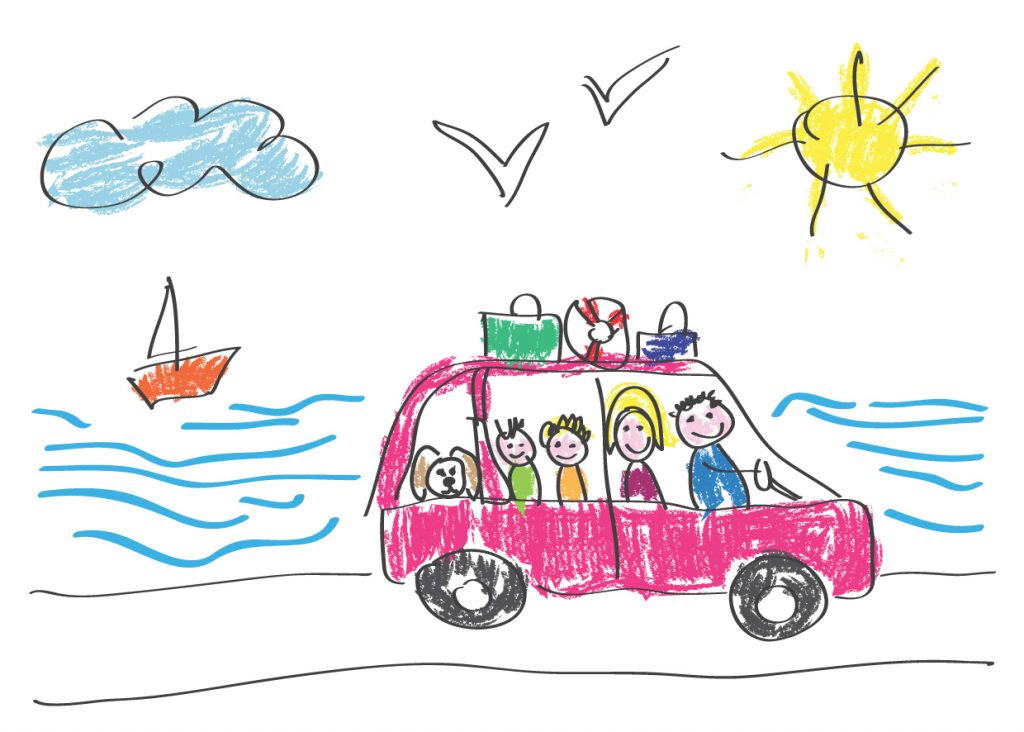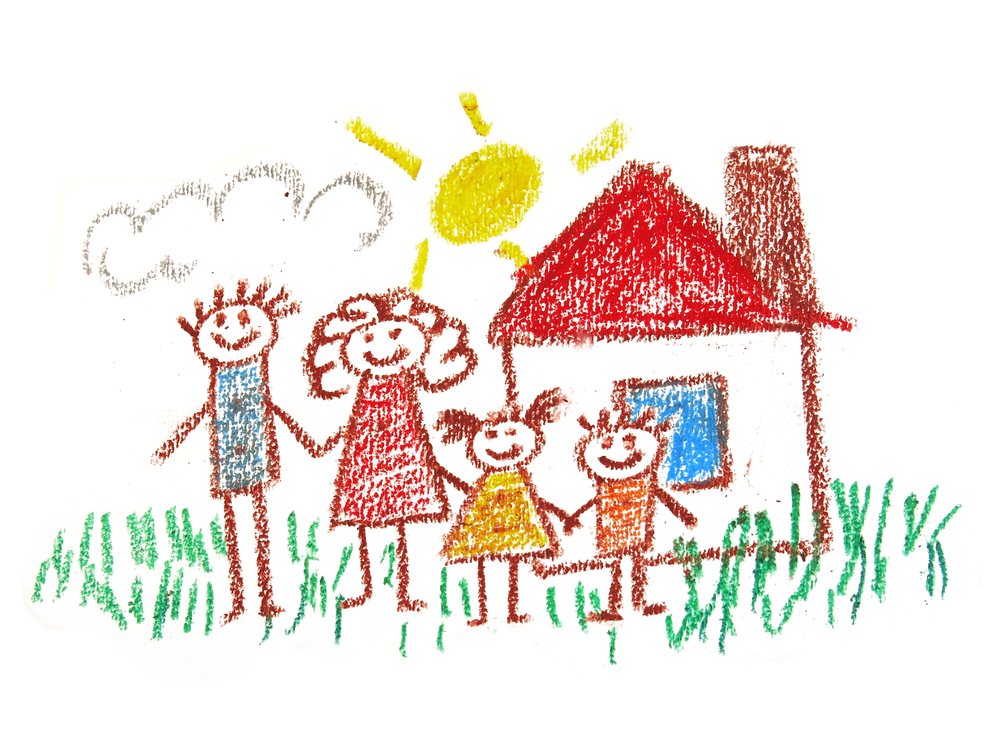We may have had to leave our country and everything we know behind all of a sudden. A new environment brings along many unknown fears. This is the same for all people. We may have lost our home, all our stuff, the lifestyle we are familiar with, or the power to do what our children want. These all hurt the sense of security we provide our children as parents.
All these circumstances lead us parents to have certain concerns about our children, with good reason. We may get anxious because we cannot buy our children what they want or offer them the living conditions we used to have back home.
Children have many needs and it is, of course, essential to meet them. However, having strong financial means is not the most crucial factor in meeting such needs.
What children need are love, trust, and security, not their toys or stuff. Having expensive clothes or visiting many fun places may feel good, but these are not among children’s essential and basic needs.
We may have run out of money or power, but our children gain strength from knowing that we are by their side. The critical point here is to see the child’s need for trust and to try to provide it.

For the child, being safe means being at home and with us. The most important source of trust for children is their parents, who love and protect them, and whom they want to believe will be there for them no matter what. It is very important for parents to see their children’s need for love and trust and make efforts to meet these needs for the whole family to be dependable and healthy.
What are the basic needs of children?
Many parents ask us psychologists questions such as; “Does it harm my children when I can’t buy them toys or don’t buy what they want from me?” or they have concerns such as; “I can’t always afford to meet my children’s wishes; will my child stop loving me because of this?”
However, it is essential to realize what such concerns carried by parents mean in the child’s world. The basic need of the child is the need for love and trust. These emotional needs, far more important than meeting the material needs, are a “must-have” in the child’s life.
The main condition for our children to become healthy, prosperous, and dependable adults is the love and trust we provide them.
| The child’s relationship with their parents is a fundamental relationship that directly impacts the child’s physical, emotional, social, and commitment development, which is a determining factor in their personality, behavior, relationship, and life choices in the future. In other words, the relationship of love and trust between the parents and the child lays out the foundation of the child’s future success. A study conducted at Harvard University suggests that no matter what environment they grow up in, a loving relationship between the child and the parents is the strongest indicator of a child’s future success. George E. Vaillant. Triumphs of Experience: The Men of the Harvard Grant Study. Cambridge, MA: Belknap Press of Harvard University Press, 2012. 457 pp. |
As parents, it is normal to have serious concerns about our children. We may get confused from time to time, thinking that it is very difficult to understand the children’s worlds, that they are puzzling creatures or that the only way to make them happy is to grant their every wish. In such cases, we must remember that we, today’s adults, were once children too. What was important to us in our own childhood is the same things that are important to the children around us today. Therefore, we can remind ourselves of things that mattered to us in our childhood if we want to understand our children.

Just as in our childhood, the basic needs of children today are very similar. Children need to know and feel that we are there for them. In other words, they need love, respect, and trust.
To meet these basic needs of our children, it is essential to pay attention to the following issues:
Love, Respect, and Trust
It is very important to develop a love, respect, and trust relationship with our child from the very first years of life. Love, respect, and trust cannot be separated from each other, and these are concepts that we must consider together. From birth, the babies start to feel safe as they see that their parents or other caregivers meet their basic needs and therefore begin to trust those around them. This sense of security and safety will contribute to the world’s perception as a safe place from infancy.
You can reinforce the relationship of trust with your child by adding respect over the years. Trust and respect should be reciprocal. If you approach your children with respect and trust and show them that this is the right way to treat people, your children will show respect and trust, making your home a healthy environment.
Treating our children with respect, listening to them when they try to say something, talking to them instead of shouting or hitting them, asking instead of giving orders, trying to answer their questions, telling them certain facts in a language that children can understand will also improve the love between us and strengthen our bond. While a loving relationship not built on respect and trust can be harmful, a loving relationship based on mutual respect and trust will give everybody around a chance to grow and develop healthily.
|
Trust and Respect Can Be Built and Learned
Trust and respect can be established right at the beginning or built later. Creating a safe environment and developing a relationship of trust requires effort and attention. There are many important elements to building trust:
- Being available when the child needs support, care or help is valuable to their life. Accompanying your child on their way to and from school on the first days of school will help them learn the route, or making an effort along with your children to help them comprehend something they don’t understand will encourage them to consult you when they need help.
These will help your children learn to trust that you will be there when they need you.
- Stick to your promises so that your children learn to trust what you say to them. For example, if you promise to come to pick them up after school or go to the park on Sunday, you should do everything you can to keep your promise.
It would be best if you did not make promises to the child on matters that you know you will not be able to keep.
- You need to be consistent. For example, approving a behavior while discouraging it another time will prevent your children from understanding what is right and what is wrong. Doing as you say and not doing what you say you won’t do” in other words, being consistent with your comments and actions will help your children understand you and trust you. This prevents children from getting confused.
- The children need to know that we will be there for them no matter what. “I’m fed up with you,” “You upset me, I can’t stand it,” or “I’m going to leave everything behind and go”; these are the examples of things that would prevent you from building a relationship of trust even if said as a joke or to intimidate the children into listening to you.
- It is natural to have moments when you don’t feel well. However, you need to be careful in your communication with the child. You should not have fights or arguments in the presence of children, and you should pay attention to what you say when you are with the child. We may think that children do not listen to or understand us. However, the children listen to and understand what is said around them.
- Children can recognize and sense problems. Instead of hiding problems from them, you should explain them in a language they can understand.
- When faced with a problem in life, it is important not to neglect the child’s basic needs. Even in bad times, it is important to maintain order at home to the extent possible. For example, it is important to set the table for dinner and eat on time even if the parents had a fight or the father was fired. Since the child will have to go to school the next day, it is essential to support the child in preparing for school regardless of the troubling environment at home. This attitude, which maintains the order in the house, is important in providing an environment of trust at home.
- Building trust takes time. Fully adopting the notion of “We are together and safe” depends on the regular and continuous effort to build trust.

Fears arise from uncertainties
We should not ignore the negative impact of fear on building and maintaining a sense of trust. In the child’s world, the most significant fears arise from uncertainties. Hiding essential facts from them to not get them upset, pretending that they did not happen, and trying to silence the child if the subject comes up or the child asks a question about it will deteriorate their concerns and harm the sense of trust. Children can get very worried about what might change in their lives. For the sense of trust to reinforce its foundation, you should listen to the child’s fears and allow them to express themselves, their feelings, and thoughts.
Children have vibrant imaginations. When they do not receive accurate information, they produce answers using their imaginations to make sense of what they do not understand. When the child has lost a loved one, it will be healthier to explain the concept of death so that they can understand and talk to your child instead of hiding the fact. When you do not do that, the child will try to interpret this event, which they have no knowledge of and have difficulty comprehending, using their imagination and trying to produce answers in their own way. Just as in fairy tales, there may be monsters, extraordinary beings, and terrifying supernatural events in the child’s imagination. When we do not provide helpful explanations to the child about the subjects they fail to understand, the child might get much more frightened.
In brief, you should help the children understand the facts in a language that they can understand, providing reasonable explanations as much as possible. Our children will be able to trust us when they feel that they can tell us about their fears and get help for them.
Children who can ask questions and realize that it is okay to talk to you about such issues will grow up to be healthier and more confident.

